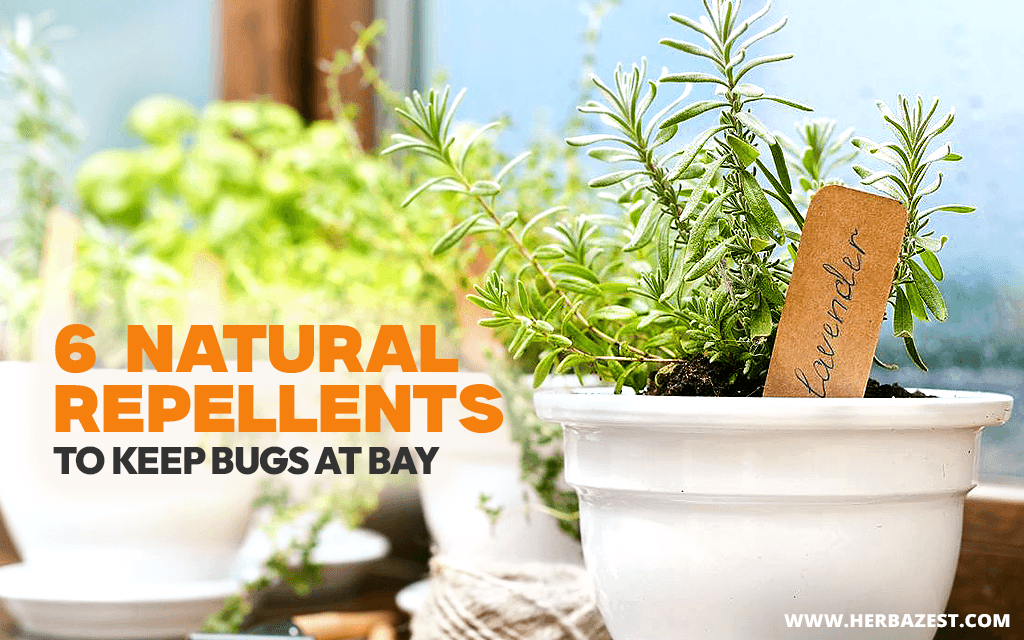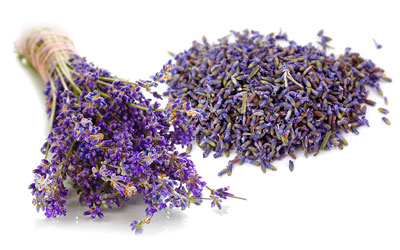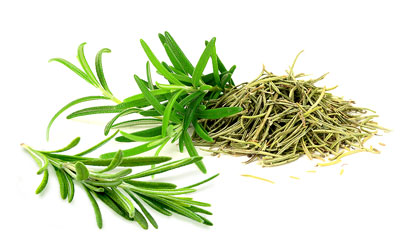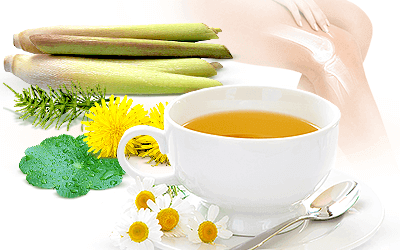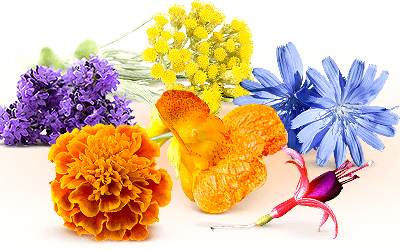Bugs, flying or otherwise, are ubiquitous, annoying, and oftentimes carriers of dangerous diseases. When the warm season approaches, luscious gardens, stale water receptacles, orchards, back yards, and even your sheets are the most common places for bugs to thrive.
About 17% of the global population is affected by "vector-borne diseases" transmitted by blood-sucking insects.1 Mosquitoes, ticks, fleas, and flies are common carriers of diseases, including malaria, yellow fever, Zika, dengue, chikungunya, and Lyme. In fact, several countries require vaccination before entrance in order to protect visitors and avoid the spread of yellow fever and malaria.2,3 However, for most bug-related diseases, including asthma, allergies, microbial diseases, and infections, there are no vaccines; avoiding exposure and using insect repellents are the only ways of protection.
Plants That Keep Insects Away
Using commercial repellents is effective to some extent; however, those products often include chemicals that can be toxic to humans, pets, and the environment. Fortunately, there are many herbs that can act as natural repellents and keep bugs at-bay!
Basil
This aromatic herb, so popular in the kitchen, is not only a natural mosquito repellent, but it has also shown antiparasitic and acaricidal activities.4,5 Rubbing fresh basil leaves on your skin, drinking them as an infusion, or topically applying a dilution of basil essential oil are some ways to reap the benefits of the herb and prevent mosquito attacks, tick bites, and infestations.
Cayenne pepper
In search of natural repellents for pest management, capsaicin, the pungent compound abundant in Cayenne pepper as well as other spicy Capsicum species, has proven useful not only for controlling common garden pests and fungus, but also warding off ants, flies, fleas, and cockroaches. Fresh Cayenne pepper can be crushed and infused in different mediums, from diluted vinegar and alcohol to water, and sprayed with deterrent purposes over countertops, corners, and other surfaces. Bugs hate the smell of Cayenne pepper and that will keep them away!
Lavender
Besides its appeal as a beautiful ornamental, lavender has earned a rightful place among the plants that repel insects. Its efficacy has not only been proven by traditional uses, but also by modern scientific research. In fact, lavender essential oil has been shown to have great potential as an environmentally friendly alternative to commercial insecticides.6 A combination of lavender and geranium essential oils diluted in alcohol makes for a great natural mosquito repellent that also helps keep ticks away. It can be safely sprayed over furniture, curtains, sheets, and other areas inside of the house.
Lemongrass
Lemongrass is not only native to tropical climates, but also highly effective for repelling the infamous Aedes aegypti mosquitoes (carriers of dengue fever, chikungunya, Zika, Mayaro virus, and yellow fever) and Anopheles mosquitoes (the culprit of malaria). The compounds in this plant, particularly citral, have potent insecticidal activities. Simply growing this tall grass around your house will do a pretty good job at deterring mosquitoes outdoors. An even more effective option is using lemongrass essential oil in homemade sprays as well as diffusing it through scented candles or aromatherapy devices. The soothing, slightly citrusy scent of lemongrass will calm your nerves and keep pests away.
Marigold
Also known as Tagetes, its scientific moniker, marigold is not only a beautiful plant that can brighten any garden with its flowers, but it has been proven useful for deterring pests in vegetable farming. It is also a great natural mosquito repellent. The best way to use it is diluting its essential oil in a neutral medium, such as alcohol, soapy water, or glycerin. Spray it over surfaces such as window frames, curtains, and clothes to keep bugs at bay.
Rosemary
A staple in the kitchen and a popular ornamental in gardens, the rosemary plant is well-known as a natural pest repellent that can not only ward off mosquitoes, but also mice and other pesky creatures. One of the components naturally found in rosemary, called terpinolene, has been shown to be as effective in eliminating ticks as DEET, a commercial formula for insect repellents.7 Keep homemade sachets of rosemary leaves in you closets and drawers, and spray it freely over your sheets and other fabrics at home.
These are just some of many natural repellents that you can safely use to get rid of bugs at home and prevent diseases. It's also important to consider general recommendations for insect control, such as eliminating any stale water receptacles, consuming fruits before they spoil, avoiding leaving food outside of the fridge for too long, and washing your sheets once a week to prevent allergies and bug bites. Give them a try!
Sources
- Centers for Disease Control and Prevention, Avoid bug bites
- Malaria Journal, Effectiveness of plant-based repellents against different Anopheles species: a systematic review, 2019
- Microbiology Spectrum, Insects and the Transmission of Bacterial Agents, 2018
- United States Environmental Protection Agency, Public Health Issues Caused by Pests
Footnotes
- Iranian Journal of Public Health. (2014). Small Bite, Big Threat: The Burden of Vector-borne Diseases. Retrieved September 5, 2023, from: https://www.ncbi.nlm.nih.gov/pmc/articles/PMC4401047/
- World Health Organization. (2022). Countries with risk of yellow fever transmission and countries requiring yellow fever vaccination (November 2022). Retrieved September 7, 2023, from: https://www.who.int/publications/m/item/countries-with-risk-of-yellow-fever-transmission-and-countries-requiring-yellow-fever-vaccination-(november-2022)
- World Health Organization. (2023). 18 million doses of first-ever malaria vaccine allocated to 12 African countries for 2023-2025: Gavi, WHO and UNICEF. Retrieved September 7, 2023, from: https://www.who.int/news/item/05-07-2023-18-million-doses-of-first-ever-malaria-vaccine-allocated-to-12-african-countries-for-2023-2025--gavi--who-and-unicef
- Phytomedicine. (1994). Mosquito repellent activities of ocimum volatile oils. Retrieved September 5, 2023, from: https://pubmed.ncbi.nlm.nih.gov/23195886/
- Experimental and Applied Acarology. (2022). Repellent and acaricidal activities of basil (Ocimum basilicum) essential oils and rock dust against Ixodes scapularis and Dermacentor variabilis ticks. Retrieved September 5, 2023, from: https://pubmed.ncbi.nlm.nih.gov/35230583/
- Plants (Basel). (2022). Lavandula dentata L.: Phytochemical Analysis, Antioxidant, Antifungal and Insecticidal Activities of Its Essential Oil. Retrieved September 5, 2023, from: https://www.ncbi.nlm.nih.gov/pmc/articles/PMC8840530/
- Pest Management Science. (2021). Three molecules found in rosemary or nutmeg essential oils repel ticks (Dermacentor variabilis) more effectively than DEET in a no-human assay. Retrieved September 7, 2023, from: https://pubmed.ncbi.nlm.nih.gov/33089620/


